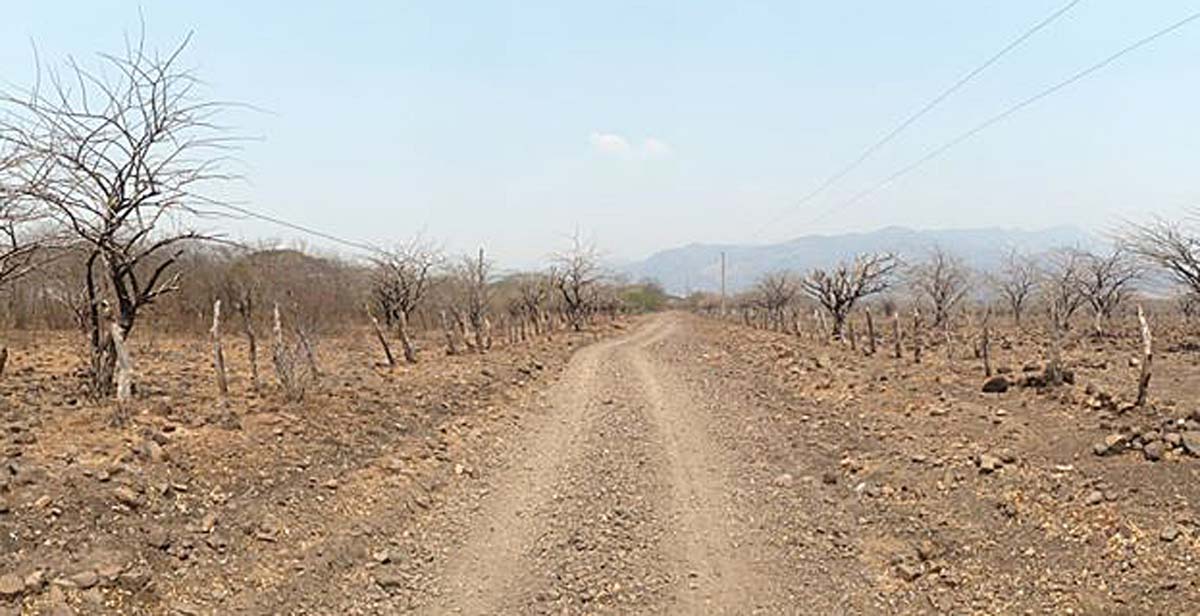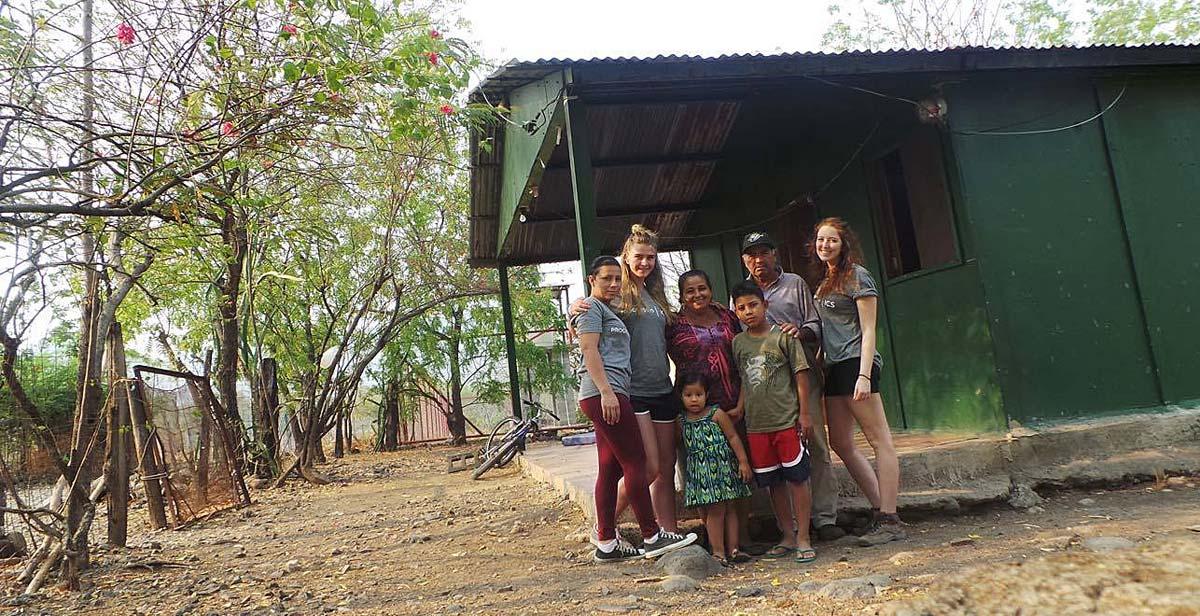Our adventure starts with six UK and seven Nicaraguan volunteers squeezed into a mini bus. With estimated journey times ranging from three hours to six, the mere four and a bit hours it took to reach the rural location of Parcila from Managua was a breeze.
Parcila is a rural community within San Juan de Limay, in north-west Nicaragua. The houses here are simple and small, mostly built of breezeblocks, timber frames and with either tilled roofs or corrugated iron, depending on the available resources and funds.

This part of Limay is particularly dry, partially due to the dry season, but also because of the on-going three-year drought in the region. As a result, not even the deep root systems of the many trees are finding water in the ground. None of this, however, seems to have inhibited the enthusiasm and hospitality of the locals. So far they seem to be keen to talk, laugh and build relationships despite many dismal attempts at speaking Spanish. This, to a degree, I’d expected. What I hadn’t expected was the political, religious, socio-economic and environmental discussions I’d be having with my new Nicaraguan host father whilst sitting on plastic chairs atop the mud floor that is his kitchen. It’s through my own naivety that I’d underestimated the global awareness of someone living in such simple surroundings apparently isolated from the world I know. It is perhaps a testament to the accessibility of the global media that our conversation was so edifying. However, I’d rather credit it to the mindfulness and sensitivity of this man who has opened his home to an unknown Scottish and English girl.
This conversation would have been completely impossible without the translations of my bilingual volunteer housemate, without who I’d be entirely lost. She relayed to me Papa Juan’s description of the Nicaraguan political system, as well as politics further afield in Central America and the USA. A conversation he ended by declaring that unless a political system works for everyone, it works for no one. This may seem like wishful thinking, but coming from a man who has lived through a revolution and reaped the initial benefits, I’d like to put faith in his opinion.
Perhaps worth noting is Juan’s first question posed to us: how is terrorism affecting us in our country and why does terrorism happen? The most difficult question to answer is why is terrorism happening. He wondered whether it’s due to politics or drugs, and when we said it’s founded in religion, he expressed confusion as to how religious people can go against their own religion by killing people in the name of their god. This is something that many of us have questioned in the past few years, but hearing it relayed in such simple terms from someone not necessarily affected by the actions of terrorists was thought provoking.
After discussing the financial deficit in both Nicaragua and the UK, we moved on to discussing the difficulties faced by small producers in Nicaragua today. Traditionally, 90 per cent of the country’s produce would come from small businesses and trade, but from what I can understand, the monopolisation of large businesses has made it impossible for small producers or traders to sell their goods or services unless through a private company that they already have a relationship with. This must surely ostracise thousands of skilled workers throughout the country who could be bettering the economy, after all more jobs results in more capital to spend.

Juan’s final words of wisdom made the part-time vegan and full time eco-warrior inside me smile. Somehow the topic of life expectancy came to light, and Juan claims that the people in this area used to live to around 100, but now 80 is considered to be a long life. Interestingly, he blames this on the pesticides used on crops, as well as the genetic modification of both crops and animals, such as chickens being breed to grow faster and fatter. We may be clever enough to modify a crop to have a better yield, but at what cost to our own health? We have a strong grip on science but nevertheless our knowledge of the implications of the many modifications of nature we have in place is limited and blinded by the profit these modifications generate. Whilst I’d love to fight for all things natural, the on going drought unfortunately means that the farm lands here are more susceptible to the likes of locusts, and the most adept way of protecting crops is through the use of more chemicals. This is just one of the many problems we are struggling to find solutions to, but simply having the discussion so far from home is a very good start.
In our first night in our new home, Papa Juan has displayed how astute someone can be despite my perception of isolation. Learning not to underestimate the perceptive nature of other people has been an apt lesson to learn so early on. Juan has been sharp enough to put many complexities into simple terms, displaying an impressive understanding for a wide range of topics. Every time we sit down for a meal he presents us with another open-ended question on the struggles of political systems or environmental issues. This surely foreshadows what is to come here during our time in Nicaragua. We are all here to help one another learn and grow for the betterment of our environment, a feat we can only achieve by collaborating with one another throughout the world.
Despite being so far from home, we’ve found a community having the exact same conversations as we’ve been having at home, which only proves our potential to change and adapt together.
Written by ICS volunteer Rebecca Walker



